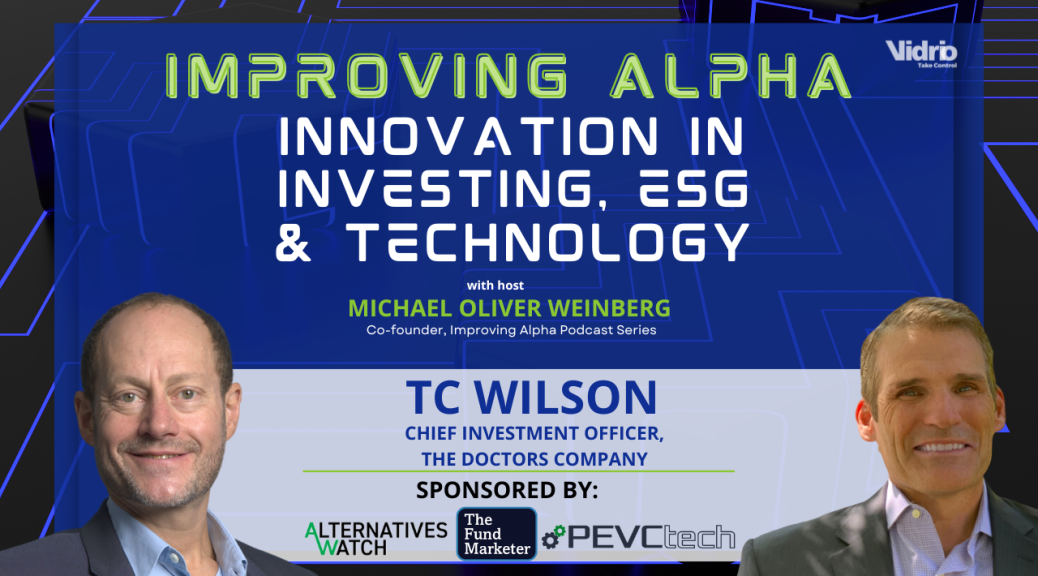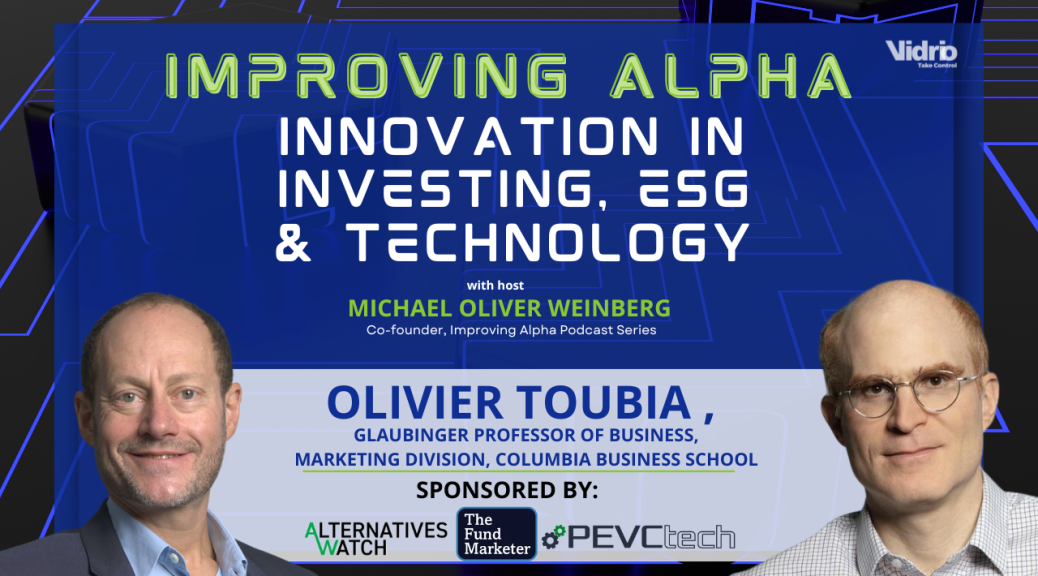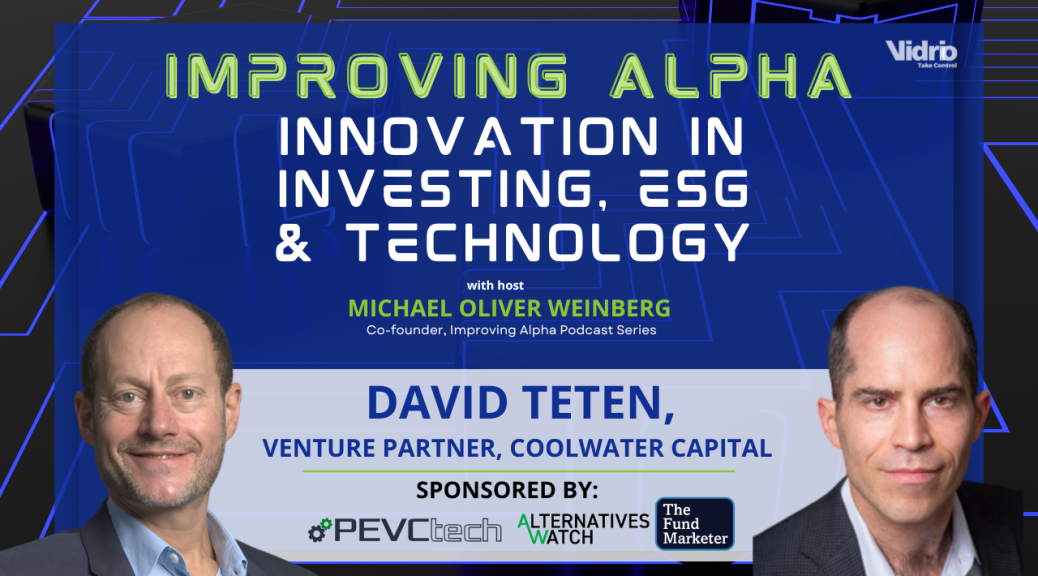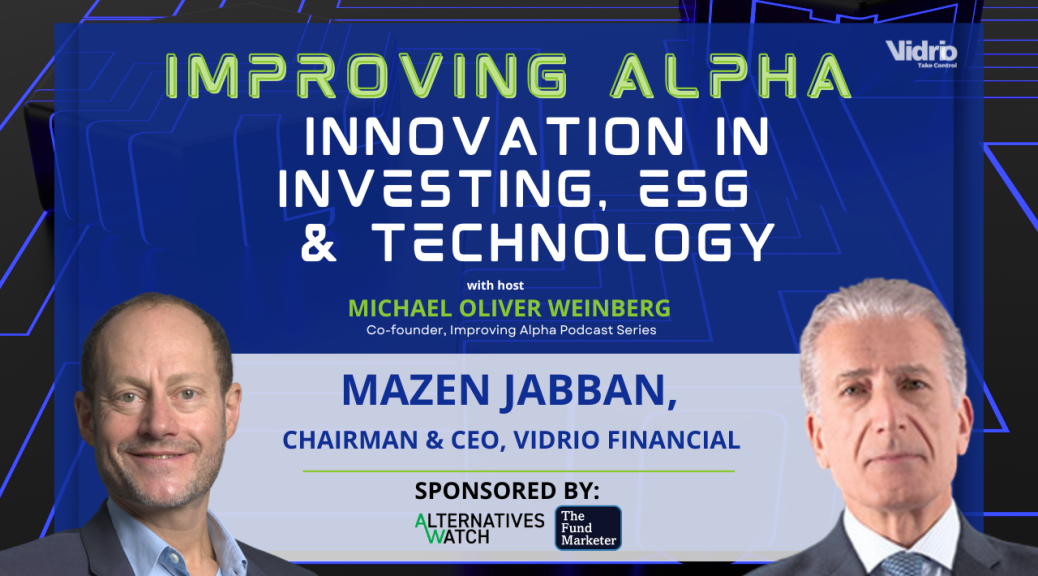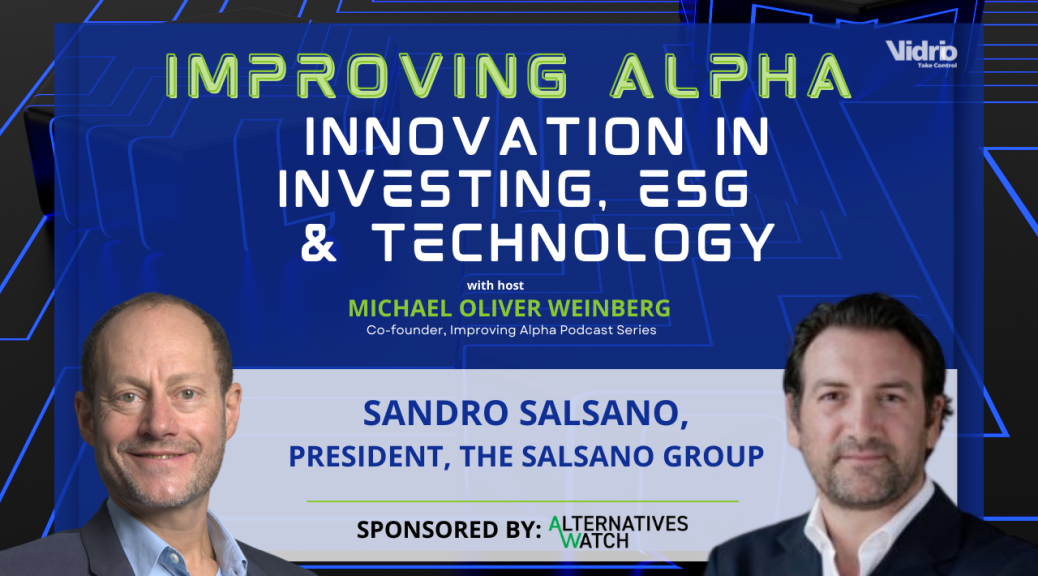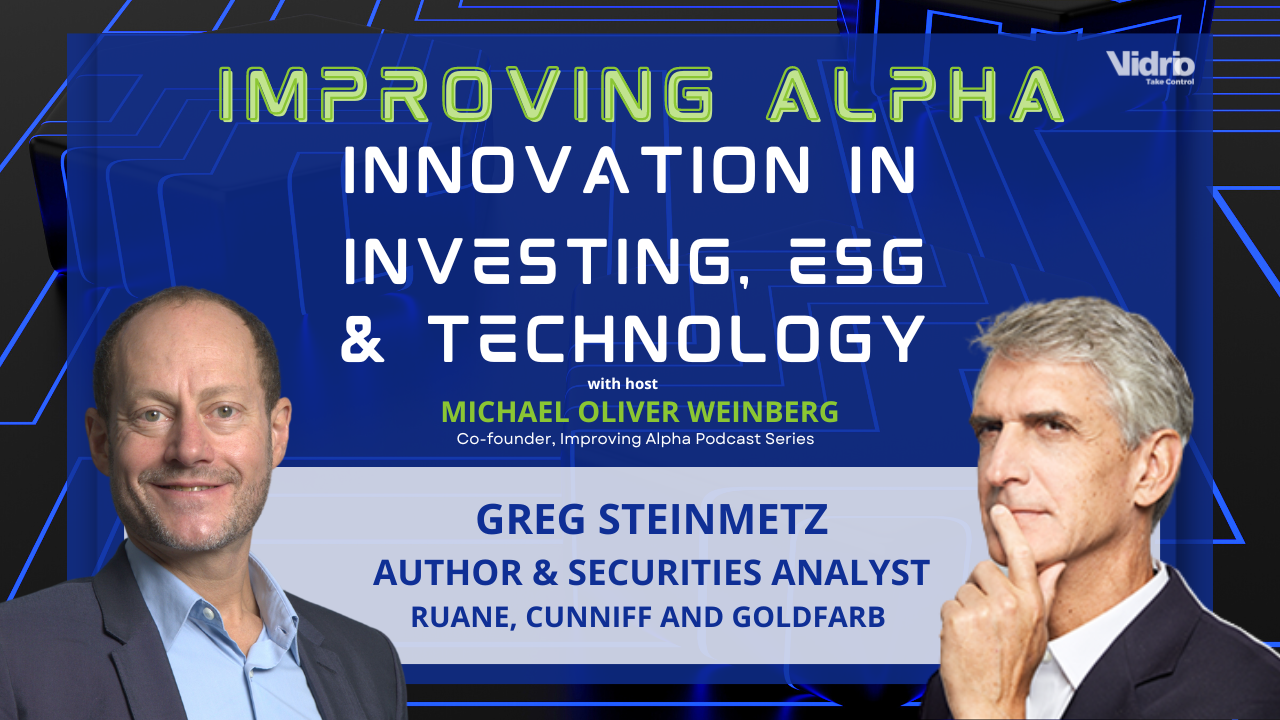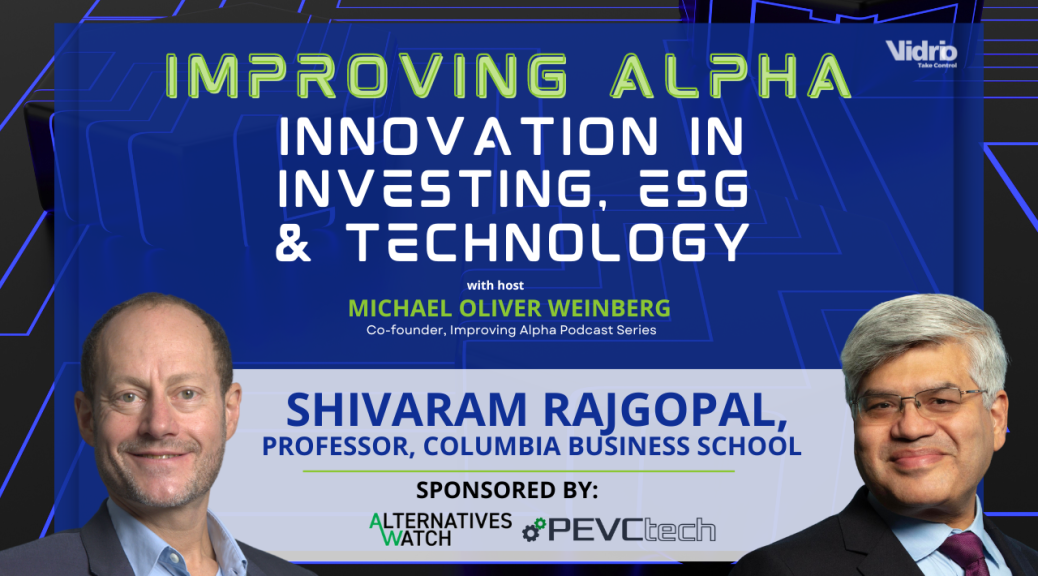
Improving Alpha: Shivaram Rajgopal on Ways to Eliminate Governance Disengagement and Zombie Organizations
Podcast: Play in new window | Download | Embed
If you are a CEO at a large public company, who do you speak with when concerned about strategy, formulation of innovative ideas, or even execution of a plan to scale your business investments? Many believe that unless there’s a large activist event or news story, decision-making is solely your own. Is there a way to bring back active governance and drive engagement from board members and investors?
In this latest installment of the Improving Alpha: Innovation in Investing, ESG, and Technology podcast Michael Oliver Weinberg and Shivaram, Rajgopal, Roy Bernard Kester and T.W. Byrnes Professor of Accounting and Auditing; Chair of the Accounting Division, Columbia University explore the challenges in corporate governance. Shivaram goes into what makes governance so difficult, the impact of corporate boards on the direction of governance, and why governance can be imagined as a slow-burning background fire that isn’t significant enough to spark investor attention.
Additional Shivaram highlights include:
- his early background as a chartered accountant and what led him to Columbia Business School.
- where do CEOs go if they want to improve their strategy, execution and formulation in governance, especially when it seems there’s no one on the other side listening outside of an activist event.
- why are companies in the S&P 1500 becoming zombies (in the economic sense), and getting capital that they don’t deserve instead of someone making the hard decisions to kick out of the index.
- what is the right timeframe to hold an investment in today’s market and is private equity superior to public equity to optimize long-term performance.
- how can the carrot and stick theory help governance when looking at board structures.
- what is causing the Japanese markets to model our investment texts (decades later), and why is this so important to governance.
- When looking at Europe, where are the European Uber, Amazon, Microsoft, Google, or Tesla, and how the governance code impacts their innovation.
- And more!
Resources:
- Forbes: It Should Be Mandatory To Disclose Political Influence Seeking And Payoffs From The State—There’s An Evidence Based Reason Why
- House Oversight Subcommittee on Economic Growth, Energy Policy, and Regulatory Affairs and Subcommittee on Health Care and Financial Services
- Do Socially Responsible Firms Walk the Talk?
- The Black Swan by: Nassim Nicholas Taleb
- The Bed of Procrustes by: Nassim Nicholas Taleb
- EconTalk
Connect with Shivaram Rajgopal:
Connect with Michael Oliver Weinberg:
About Our Guest:
Shiva Rajgopal is the Roy Bernard Kester and T.W. Byrnes Professor of Accounting and Auditing at Columbia Business School. He has also been a faculty member at the Duke University, Emory University and the University of Washington. Professor Rajgopal’s research interests span financial reporting, earnings quality, fraud, executive compensation and corporate culture. His research is frequently cited in the popular press, including The Wall Street Journal, The New York Times, Bloomberg, Fortune, Forbes, Financial Times, Business Week, and the Economist. He teaches fundamental analysis of financial statements for investors, managers and entrepreneurs and a PhD seminar on accounting regulation.
The information covered and posted represents the views and opinions of the guest and does not necessarily represent the views or opinions of Vidrio Financial, and/or our host, Michael Oliver Weinberg. The Content has been made available for informational and educational purposes only. The Content is not intended to be a substitute for professional investing advice. Always seek the advice of your financial advisor or other qualified financial service provider with any questions you may have regarding your investment planning.
The release date may not correspond to the recording date.
